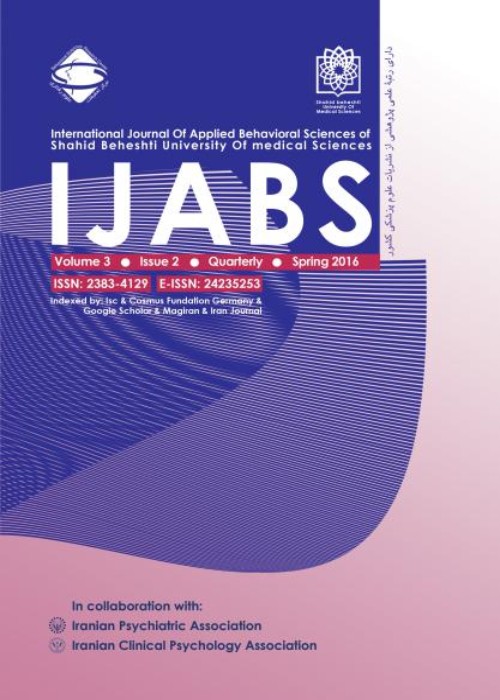Ecological Model of Adaptation with Diabetes type 2: Development and Study of Empiric Fitness
The present study aimed at presenting and testing a model to describe the adaptation phenomenon among the patients engaged with type 2 diabetes (T2D).
This is a correlational research design wherein a total of 350 individuals referring to four special medical centers for diabetes at Tehran (Iran). The research instruments included the Jackson’s five-factor questionnaire, demographic and social support subscales of diabetes care profile, cognitive appraisal of diabetes scale, problem areas in diabetes survey, Billings and Moos coping strategies scale, appraisal of adaptation to diabetes scale, and HbA1C level.
The outputs of the tests on the final model of the research showed that the behavior activating system, fight, flight and freeze system, global social support, and “Get” social support impose significant effects on the cognitive appraisal. Moreover, the “Get-Want” & Global Social support, Fight, Flight & freeze System and the cognitive appraisal affected the adaptive tasks significantly. The Fight, Flight & freeze System and the adaptive tasks imposed significant effects on the problem-focused emotional-physical coping. The Problem focused socio-cognitive coping and the emotional-physical coping affected the initial adaptation significantly. Behavior inhibition system, all the three components of social support, and Problem focused Socio-cognitive coping imposed significant effects on the secondary adaptation. And finally, Global social support and initial adaptation affected the HbA1C significantly. In addition, a number of intermediate effects were verified.
Upon accessing the model of adaptation to disease for a particular individual, one can access his/her adaptation profile and evaluate the strengths and weaknesses of his/her adaptation structure and formulate the required interventions accordingly.Declaration of Interest: None
- حق عضویت دریافتی صرف حمایت از نشریات عضو و نگهداری، تکمیل و توسعه مگیران میشود.
- پرداخت حق اشتراک و دانلود مقالات اجازه بازنشر آن در سایر رسانههای چاپی و دیجیتال را به کاربر نمیدهد.


